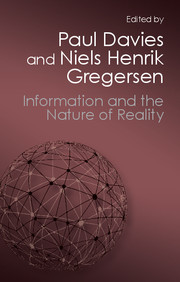Book contents
5 - The computational universe
Published online by Cambridge University Press: 05 June 2014
Summary
It is no secret that we are in the midst of an information-processing revolution based on electronic computers and optical communication systems. This revolution has transformed work, education, and thought, and has affected the life of every person on Earth.
The information-processing revolutions
The effect of the digital revolution on humanity as a whole, however, pales when compared with the effect of the previous information-processing revolution: the invention of moveable type. The invention of the printing press was an information-processing revolution of the first magnitude. Moveable type allowed the information in each book, once accessible only to the few people who possessed the book's hand-copied text, to be accessible to thousands or millions of people. The resulting widespread literacy and dissemination of information completely transformed society. Access to the written word empowered individuals not only in their intellectual lives, but in their economic, legal, and religious lives as well.
- Type
- Chapter
- Information
- Information and the Nature of RealityFrom Physics to Metaphysics, pp. 118 - 133Publisher: Cambridge University PressPrint publication year: 2014



